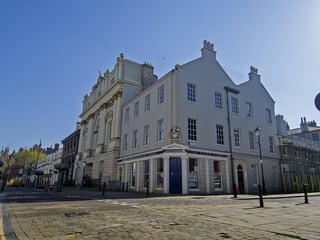Ilkley - the town visited by everyone from Charles Darwin to Jimi Hendrix
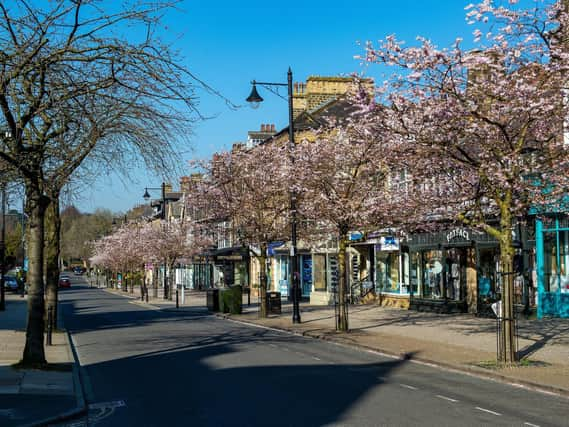

Today, Hendrix is revered by many rock music fans, but 53 years ago he was a little-known guitarist on the cusp of stardom. He’d been a member of Little Richard’s backing band when he was talent spotted by former Animals bass player Chas Chandler who set up a tour of small clubs across the UK.
In between the gigs being arranged and Hendrix hitting the road, he had his first top 10 hit with Hey Joe, which brought him to the attention of critics and fans alike. Even so, locals could have been forgiven for greeting the arrival of this psychedelic hippie and his entourage with blank looks when they rolled into town.
Advertisement
Hide AdAdvertisement
Hide AdThe night didn’t go well for Hendrix and his band The Experience who travelled to Ilkley after a poorly-attended gig at Leeds’ International Club. However, word got out that he was heading to Ilkley and hundreds of fans squeezed into the Troutbeck Hotel (now a nursing home) to watch the band in action.
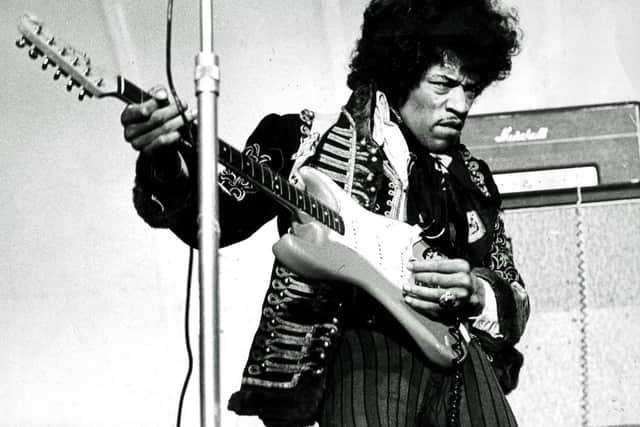

What happened next is a matter of conjecture. Some reports claimed as many as 900 people descended on the venue and a local newspaper later ran a headline that read: ‘Pop Fans Ran Amok in Hotel.’
In the end Hendrix had barely got started when a local policeman walked on stage concerned about people's health and safety and the gig was brought to a premature end.
The story goes that Hendrix then trudged off for a fish and chip supper nearby. One woman who was there spotted him in the queue and years later was asked what she did. “I ripped off a piece of fish and chip paper and went over and asked for his autograph.”
Advertisement
Hide AdAdvertisement
Hide AdShe probably enjoyed her evening more than Hendrix, though at least he had the consolation of tucking in to some fine Yorkshire fish and chips.
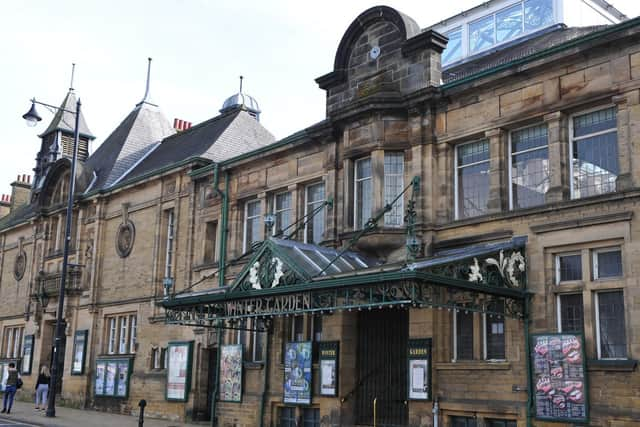

Like a Roman candle, Jimi Hendrix’s star burned brightly, but briefly.
The earliest indications of life in the area can be found on Ilkley Moor, which is home to carvings believed to date from the Early Bronze Age, around 1800 BC. They are part of a larger group of carvings dotted across Rombalds Moor, though their exact purpose remains a mystery.
As with so many towns, the Romans left their mark on Ilkley, no doubt seduced by its riverside charms. They established a small fort on the road from York to Manchester, calling it Olicana. “It was positioned as the crossing point on the River Wharfe and this became the centre of Ilkley, with the churches and the Manor House inside the curtilage of the fort,” says Helen Kidman, chair of Ilkley Civic Society and vice-chair of the Friends of Ilkley Moor.
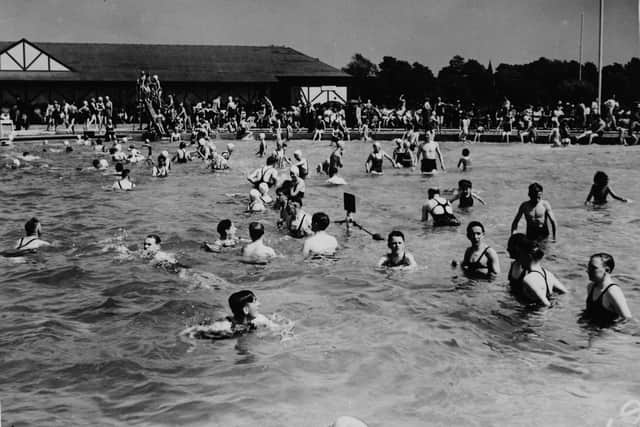

Advertisement
Hide AdAdvertisement
Hide AdThere is little evidence of this settlement today, though a few remnants can be discovered close to the Manor House and adjacent All Saints’ Parish Church.
Ilkley remained little more than a hamlet for centuries and it wasn’t until the mid-1800s that it rose to fame as a spa town. By the mid-19th century there was growing belief in the health benefits of cold water and bathing that led to the development of grand hydro hotels with wealthy visitors arriving by coach to ‘take the waters’.
Ilkley became a flourishing spa town almost overnight in the late 1830s. “In Harrogate what makes the water effective is sulphur and other properties. In Ilkley, what you get is ‘pure’ water. It’s cold, but very pure,” explains Helen.
Charlotte Brontë made two short visits to the town in 1853, and six years later it had another famous visitor, Charles Darwin. When On the Origins of Species was published on November 24, 1859, Darwin, was near the end of a nine-week stay in Ilkley. He had come for the ‘water cure’ – a regime of cold baths and wet sheets – and for relaxation. “He came to Ilkley because it was a little more obscure. He would usually go to Malvern but he chose to come here when he published On The Origin of Species in order to be well out of the way,” says Helen.
Advertisement
Hide AdAdvertisement
Hide Ad“He stayed initially in the Wells House, but we understand he found that rather expensive so he moved to the building known as Hillside (Alan Titchmarsh was born here), at the top of the Wells walk.”
Ilkley owes much of its initial prosperity to its spa town status, although these days it’s arguably better known for its lido.
Another key moment in the town’s development was the arrival of the railway. “There had been two previous attempts to put railways through Ilkley but there was a lot of quarreling at the time over which routes would be used. It finally came to Ilkley in 1865 and was subsequently extended to Skipton via Bolton Abbey.”
This made the town more accessible and many visitors made a beeline for Ilkley Moor. As well as being home to the millstone grit outcrops known as the Cow and Calf Rocks, the moor also spawned the famous Yorkshire anthem, or dirge depending on your point of view, On Ilkla Moor Baht ’at. It is, basically, a song about the danger of courting up on the moor without a hat, and is the first thing many people still think of when you mention Ilkley to them. “Some locals will run a mile if you sing even half a phrase...but people know every word,” says Helen.
Advertisement
Hide AdAdvertisement
Hide AdIf this song (it’s actually a hymn) helped put Ilkley on the map, then so, too, has the town’s literature festival which started back in 1973, when WH Auden was the star turn alongside JB Priestley, Margaret Drabble and Fay Weldon.
The event almost ended before it started when Auden, in ill-health, clashed with the local church almost as soon as he arrived, arguing over which version of the Bible he would use to read the lesson. Thankfully for us it continued and has over the years attracted such notable figures as Alan Bennett, Ted Hughes, Clive James and Maya Angelou, and is now ranked alongside the Cheltenham and Hay-on-Wye festivals for its significance in the publishing calendar.
Today, Ilkley is a smart, well-heeled place. It’s home to the famous Box Tree restaurant where the likes of Marco Pierre White, Nigel Slater and Daniel Clifford have all cooked, and Bettys cafe, and offers a comfortable commute to people working in Bradford, Leeds and Harrogate.
Helen says its location is one of its major assets. “From the town centre to the edge of the moor and open countryside is a ten-minute walk for most people. You can be up at White Wells in about 20 minutes, which makes the open country very accessible.
Advertisement
Hide AdAdvertisement
Hide Ad“The fact that if you live here you can be in the Dales in 20 minutes at Bolton Abbey, or over to Skipton, that makes it attractive to people.”
The town isn’t without its problems with flooding – which occurred again this winter – perhaps chief among them. Nevertheless, it continues to punch above its weight. “It’s got a huge voluntary sector and a large number of arts organisations and a lot of music events,” adds Helen.
“Ilkley started off being an ordinary Dales village and as the water cure became popular it became gentrified and it’s still a great place to live today – there’s a lot going on here.”
Editor’s note: first and foremost - and rarely have I written down these words with more sincerity - I hope this finds you well.
Advertisement
Hide AdAdvertisement
Hide AdAlmost certainly you are here because you value the quality and the integrity of the journalism produced by The Yorkshire Post’s journalists - almost all of which live alongside you in Yorkshire, spending the wages they earn with Yorkshire businesses - who last year took this title to the industry watchdog’s Most Trusted Newspaper in Britain accolade.
And that is why I must make an urgent request of you: as advertising revenue declines, your support becomes evermore crucial to the maintenance of the journalistic standards expected of The Yorkshire Post. If you can, safely, please buy a paper or take up a subscription. We want to continue to make you proud of Yorkshire’s National Newspaper but we are going to need your help.
Postal subscription copies can be ordered by calling 0330 4030066 or by emailing [email protected]. Vouchers, to be exchanged at retail sales outlets - our newsagents need you, too - can be subscribed to by contacting subscriptions on 0330 1235950 or by visiting www.localsubsplus.co.uk where you should select The Yorkshire Post from the list of titles available.
If you want to help right now, download our tablet app from the App / Play Stores. Every contribution you make helps to provide this county with the best regional journalism in the country.
Sincerely. Thank you.
James Mitchinson
Editor
Comment Guidelines
National World encourages reader discussion on our stories. User feedback, insights and back-and-forth exchanges add a rich layer of context to reporting. Please review our Community Guidelines before commenting.
